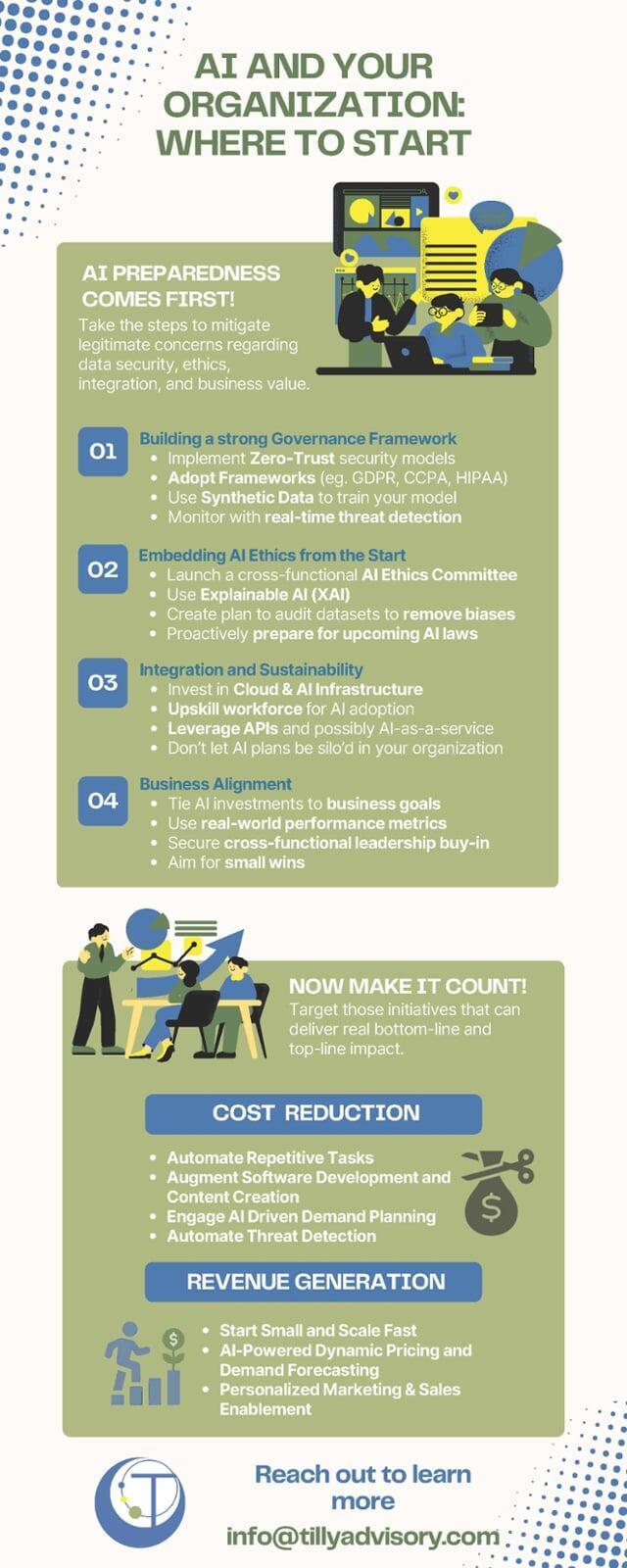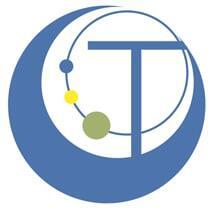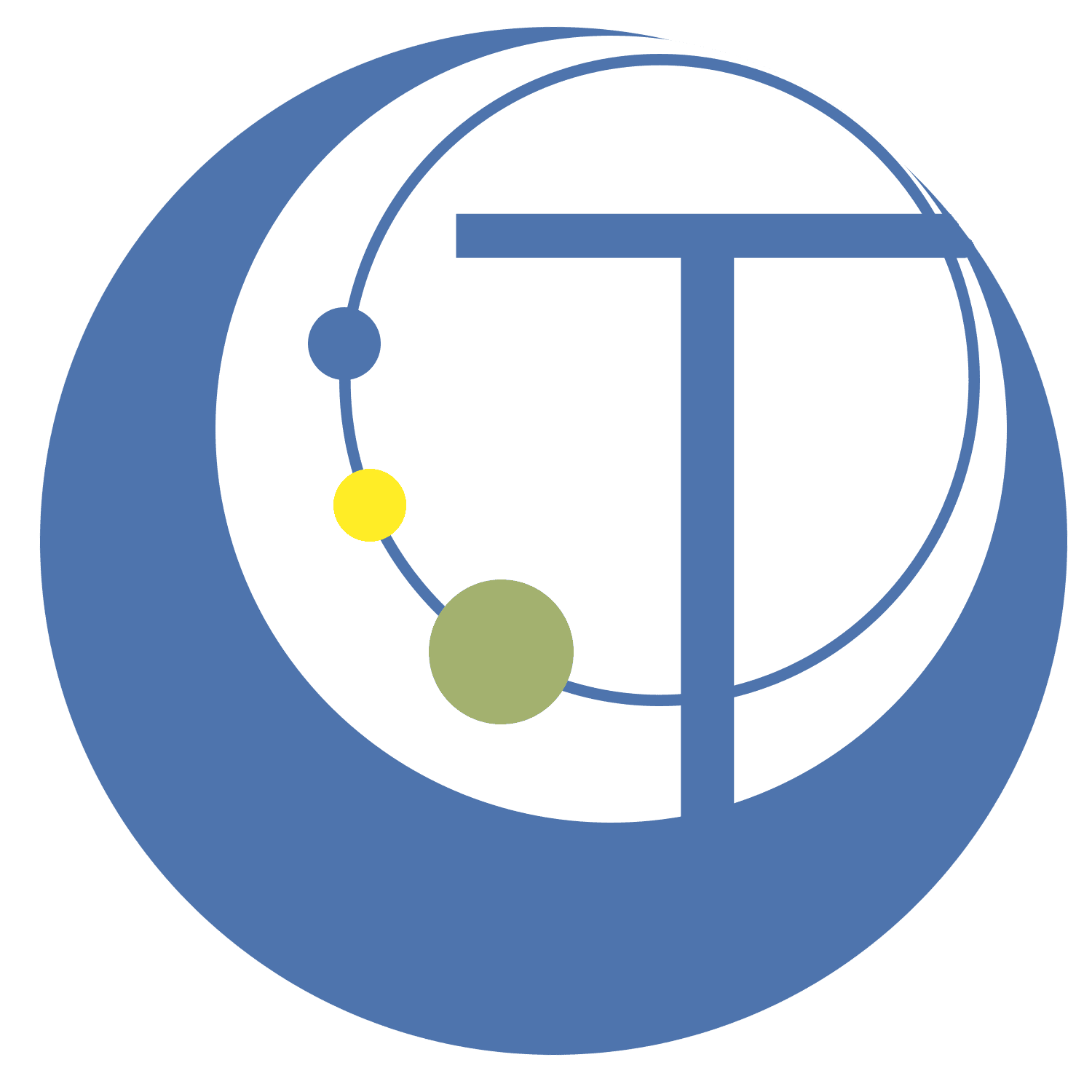Turning AI on is the easy part
Artificial Intelligence (AI) is no longer a futuristic concept, it’s here, and it’s transforming the way businesses operate. From automating repetitive tasks to delivering real-time insights, predictive analytics, and hyper-personalized customer experiences, AI is driving unprecedented levels of productivity and innovation. Enterprises that integrate AI effectively gain a competitive edge, optimizing processes, reducing operational costs, and empowering employees to focus on high-value strategic work.
However, as AI adoption accelerates, organizations must take proactive steps to mitigate risks and ensure safe, scalable, and sustainable AI implementation. Here are the top three concerns executives face and the actions businesses must take:
Data Privacy, Security & Compliance
- Ensure AI models comply with global regulations like GDPR, HIPAA, and CCPA to protect customer data.
- Implement robust cybersecurity measures to prevent unauthorized AI access or malicious exploitation.
- Mitigate bias in AI models by ensuring data integrity, fairness, and ethical AI training practices.
Integration & Workforce Impact
- Organizations must ensure AI enhances, not replaces, human workers by focusing on augmentation rather than automation alone.
- Develop re-skilling and up-skilling programs to prepare employees for new AI-powered workflows.
- Adopt a phased AI rollout strategy, integrating AI tools gradually to maximize adoption and minimize operational bottlenecks.
Ethical AI & Governance
- Establishing an AI governance framework to monitor AI-driven decisions, ensuring fairness and accountability.
- Using explainable AI (XAI) models that provide clear reasoning behind decisions to avoid black-box AI issues.
- Regularly auditing AI models to detect biases and ensure alignment with corporate values and regulatory standards.
The Path Forward
AI is an unstoppable force of innovation, but successful adoption requires thoughtful planning, strong governance, and a commitment to responsible AI use. By proactively addressing these challenges, businesses can unlock AI’s full potential while maintaining trust, security, and long-term sustainability.
Is your enterprise ready to embrace AI the right way? Let’s make it happen! Get our Infographic here.


